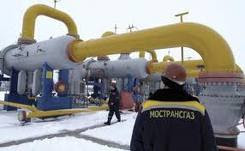Kwok W. WAN Petroleum Economist
LONDON: Iraq wants to export gas found in the blocks on offer in its fourth licensing round
to Europe by pipeline through Turkey and as liquefied natural gas (LNG).“We are awaiting various development plans for the fields to decide whether we should start work on a gas-export project to the EU through Turkey,” Iraqi deputy oil minister Ahmed al-Shamma told reporters on the sidelines of the Iraq Mining conference on Wednesday. “That’s what we hope to achieve from the fourth round, to discover some good gas reserves to give us assurance for that project.”
Iraq has pre-qualified 46 companies to bid for the 12 blocks, with the deadline for bids in January 2012. The 46 firms include supermajors – BP, Chevron, ExxonMobil, and Shell – national oil companies from China, Malaysia and India, as well as a handful of independents. US independent Hess was excluded because the firm has signed upstream deals with the semi-autonomous Kurdistan Regional Government, which the oil ministry regards as illegal.
First exploration awards
Seven of the 12 blocks are prospective for gas, while the other five are oil-prone. This round is the first to offer exploration contracts, rather than the technical service contracts offered in the past three rounds. The 12 blocks on offer cover 81,700 square km.
Iraq hopes the blocks will add 29 trillion cubic feet (cf) of gas and 10 billion barrels of oil to its reserves. According to Opec data, at the end of 2010, Iraq had proved gas reserves of 112 trillion cf, but produced only 46 billion cf of marketable output – 268 billion cf was flared. Proved oil reserves stood at 143 billion barrels.
Of the exploration blocks on offer, one lies in restive northern Nineveh province, another in Basra, three in the western desert of Anbar province and seven in other areas of central and southern Iraq. Al-Shamma told reporters that Iraq did not need the EU-backed Nabucco pipeline to deliver gas to Europe. “We send [the gas] to Turkey and then use whatever capacity is available. They have more than one project going on there,” he said. Other Southern Corridor pipeline projects aiming to carry Central Asian and Middle Eastern gas to Europe include the Trans-Adriatic Pipeline, the Azerbaijan-Georgia-Romania Interconnector, and Ukraine’s White Stream.
Al-Shamma also said gas exports to Europe would begin only if gasfields were found, saying associated gas would not be exported by pipeline. “If we depend on associated gas, that will fluctuate and we cannot commit to a long-term export project. We need to have a stable supply and that can be achieved only with some reserves of free gas.”
The LNG option
Associated gas could, however, be exported as LNG. Al-Shamma said Iraq could export up to 3 million tonnes a year (t/y) of LNG, with capacity expansion also a possibility. “In our agreement with Shell, there will be a small LNG project. It depends on how much gas we have, it could expand. Now there are talks of 3 million t/y [of LNG exports].”
The Iraqi Higher Energy Committee agreed earlier this week to invest $13 billion in an LNG joint venture with Shell and Mitsubishi to exploit associated gas from oilfields in southern Iraq. The Basra Gas joint venture will be 51% held by state-owned South Gas, 44% by Shell, with Mitsubishi taking 5%.
Basra Gas is expected to develop associated gas from three of southern Iraq’s supergiant oilfields – the 20 billion barrel Rumaila field, West Qurna-1, which holds reserves of 8.7 billion barrels, and the 6 billion barrel Zubair.
Since the fall of Saddam Hussein, the oil ministry has signed 11 oil contracts with foreign firms. This followed two auctions held in 2009. Last year, it awarded three gasfields. In the second quarter of the year, Iraq produced 2.67 million barrels a day of oil, around 80% of which is exported. The country derives
about 90% of its revenue from oil sale
Source:
http://www.petroleum-economist.com/Article/2896968/Iraq-eyes-EU-gas-exports-through-Turkey.html

Hiç yorum yok:
Yorum Gönder